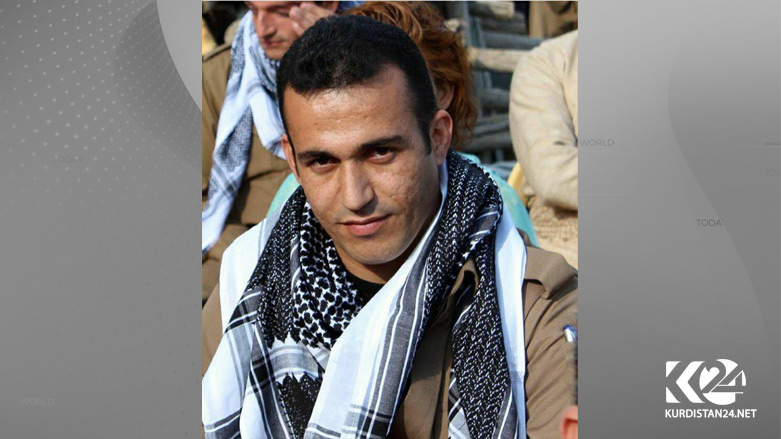Kurdish prisoner on death row embarks on hunger strike

ERBIL, Kurdistan Region (Kurdistan 24) – A Kurdish prisoner who has been held in solitary confinement and sentenced to death without a fair trial has been on a hunger strike for a week, his family told Kurdistan 24.
On June 23, the Islamic Revolutionary Guard Corps (IRGC) of Iran shot dead three members of Komala, a Kurdish opposition group, and took an injured Ramin Hossein Panahi into custody but refused to inform his family of his fate or whereabouts.
It took the Iranian intelligence agency over four months to admit to having Ramin in their custody, and the acknowledgment was followed by news of his imminent execution.
In protest to not having had a lawyer, an official hearing, and not being transported to a central prison, Ramin embarked on a hunger strike a week ago.
“After 124 days, the Sanandaj intelligence agency admitted to keeping Ramin but said we would never see him again because ‘he would be executed right there,’” Amjad Hossein Panahi, the brother of the detainee, stated.
“My mother fainted there and was rushed to the hospital,” he added, explaining that his family appealed to authorities in person 23 times until they were willing to say a word about Ramin.
Two of the detainee’s brothers and several cousins were also arrested in a raid by the association shortly after the ambush on Peshmerga in the Kurdish region of Iran, also known as Rojhelat.
Additionally, Afshin Hossein Panahi, Ramin’s brother, was sentenced to eight-and-a-half-years in prison for “aiding and abetting an opposition party.”
The denial of family visits and medical attention to prisoners is against Iran’s law as well as international laws.
Amnesty International called on Iran to reveal the fate and whereabouts of the five Kurdish men who have been subject to forced disappearance.
“Enforced disappearance is a crime under international law and places individuals at serious risk of extrajudicial execution, torture, and other gross human rights violations,” Amnesty said.
Iran Human Rights Documentation Centre, Association for Human Rights in Kurdistan of Iran-Geneva (KMMK-G), and other rights groups are also urging Iran to release the political prisoner and provide him with medical attention and a lawyer.
Afshin, who was shot three times, was reportedly transported to a hospital in Sanandaj but was then taken into custody half an hour later before receiving proper treatment.
The Hossein Panahi family has lost several members in the past few years to Iran’s suppression of the Kurdish opposition.
They are currently grieving the loss of one of their sons, Sabah Hossein Panahi, while overwhelmingly anxious about the fate of their child, Ramin, and the imprisoned one, Afshin.
Editing by Karzan Sulaivany
